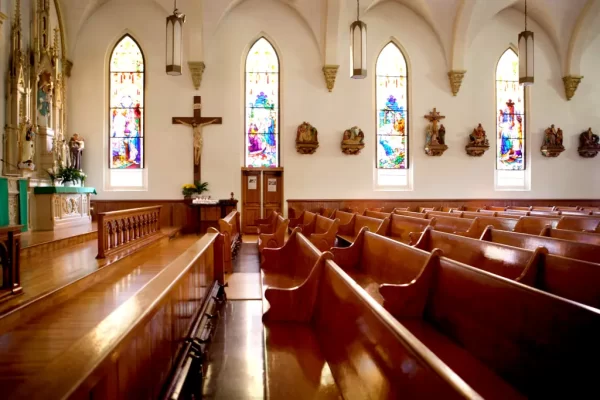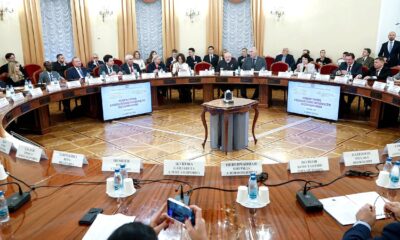Article of Faith
Liturgies of Lust: Sexual Exploitation in Nigerian Churches -By Patrick Iwelunmor
But theology also bears responsibility. When faith is taught as a licence to ignore medicine and law, when miracles are framed as proof that pastors are above earthly accountability, when dissent in the pews is cast as spiritual rebellion — the church becomes a protected economy of impunity. Religious texts and rituals can be twisted into endorsements of secrecy, and prophetic authority, when unchecked, concentrates power without responsibility.

There is a sickness in the shadow of the altar, a corruption that smells faintly of incense but reeks of power abused. It is not the spiritual struggle pastors preach about on Sunday mornings; it is a cruder commerce — where anointing becomes an access card, prayers become cover stories, and the sacred body is recast as an available body. In Nigeria, this rot has manifested in ways that are at once shocking and painfully predictable: congregants who trusted spiritual shepherds only to discover that what was offered as deliverance was, in fact, exploitation.
The pattern is old and grotesquely simple. A cleric positions himself as a conduit of divine favour. He cultivates access — inner circles, counselling sessions, “spiritual” ministrations that require private encounters. He speaks the language of healing and authority, and people — hungry, hopeful, often impoverished — place their bodies and their trust at his feet. When the minister’s hand lingers longer than prayer requires, or when promises of supernatural blessing are traded for sexual obedience, the crime is not merely one of lust; it is an institutional betrayal of the most vulnerable.
Public scandals have peeled this betrayal into the open. In Nigeria, allegations that ignited social media and public protests revealed a disturbing truth: the powerful have used spiritual cover to abuse. One case that sparked national outrage involved a veteran pastor accused by a well-known photographer of raping her as a teenager. The allegations triggered demonstrations and the hashtags #MeToo and #ChurchToo, sweeping across the country’s public squares as survivors began to name names and tell stories.
Courtrooms have offered harsher confirmations. In Lagos, a cleric famed for his “prophetic” ministry was sentenced to life imprisonment after being found guilty of raping a subordinate. The judgment pierced through the protective murmur of conspiracy and privilege to declare, plainly, that the law will not always allow the mantle of ministry to shield crimes. Such convictions are not isolated curiosities but symptoms of a deeper rot: when spiritual leadership becomes entangled with sexual predation, the result is not only personal trauma but a public-health and social-trust wound that widens with every hush-money payoff and smear campaign.
The story repeats itself in other corners of the country. In Cross River and neighbouring states, a pastor was handed an uncompromising sentence for serial rape, including the abuse of a minor described in court as his “spiritual daughter.” These are not mere moral failures whispered in pulpit gossip; they are criminal acts adjudicated by judges. The law’s response — sometimes belated, sometimes partial — underlines the scale of institutional failure that allowed such exploitation to flourish unchecked for years.
At the continental level, Nigerian preachers with large international followings have also faced accusations, trials, and, in some cases, convictions or prolonged prosecutions. The headlines are messy: arrests, charges, acquittals, and appeals. Whether conviction or acquittal, the spectacle itself — a charismatic pastor in handcuffs abroad, or a once-glorified televangelist’s ministry linked to systematic abuse — feeds public cynicism and corrodes the moral credibility of religious institutions. The painful truth is that when a handful of leaders weaponize faith to gratify appetite, they delegitimize the honest labour of pastors who genuinely serve their communities with schools, clinics, and shelters.
Why does this abuse thrive? Part of the answer lies in structural poverty and a fragile public safety net. Where hospitals are underfunded and social supports thin, the church often becomes the first — sometimes the only — port of call for the desperate. A discreet late-night “prayer meeting” costs nothing; an MRI or specialist consultation may cost a family its future. Predatory pastors exploit this gap, selling a false economy of salvation. They convert material vulnerability into spiritual leverage and then demand repayment in the coin of bodies and silence. Sometimes, these pastors are also emboldened by the deification they enjoy among female followers, a misplaced reverence that fuels their confidence. As we speak, an Abuja-based pastor, famous for his flamboyant dancing steps, is standing trial for allegedly raping a 14-year-old member of his church.
But theology also bears responsibility. When faith is taught as a licence to ignore medicine and law, when miracles are framed as proof that pastors are above earthly accountability, when dissent in the pews is cast as spiritual rebellion — the church becomes a protected economy of impunity. Religious texts and rituals can be twisted into endorsements of secrecy, and prophetic authority, when unchecked, concentrates power without responsibility.
The public-health consequences are grave. Sexual exploitation is not only a criminal act; it is also a vector for trauma, unwanted pregnancies, sexually transmitted infections, and lifelong psychological harm. It erodes trust in institutions: survivors who first sought help in churches may later mistrust healthcare providers or the justice system, delaying treatment and obstructing justice. In this way, fake anointings that mask abuse are as dangerous as quack cures and fraudulent healings — they endanger bodies, families, and communities.
What then is to be done? Churches must embrace transparency: open counselling processes, insistence on chaperones for private sessions, and robust complaint mechanisms that do not punish whistleblowers. Civil authorities must act with urgency; prosecution and survivor protection should not be delayed by the social capital of suspects. Public-health agencies and civil-society groups must partner with reform-minded churches, funding health outreaches, legal literacy, and survivor support so that the sanctuary once again becomes a place of healing.
Finally, the faithful themselves must reckon with an ethical demand that is not sentimental: holiness without accountability is not holiness at all. The anointing that blesses must also be the anointing that protects. Until Nigerian churches confront these liturgies of lust — until they refuse to permit sacrilege in the name of salvation — the altar will continue to be both sanctuary and snare, and the poor will keep paying the price for other people’s counterfeit faith.










